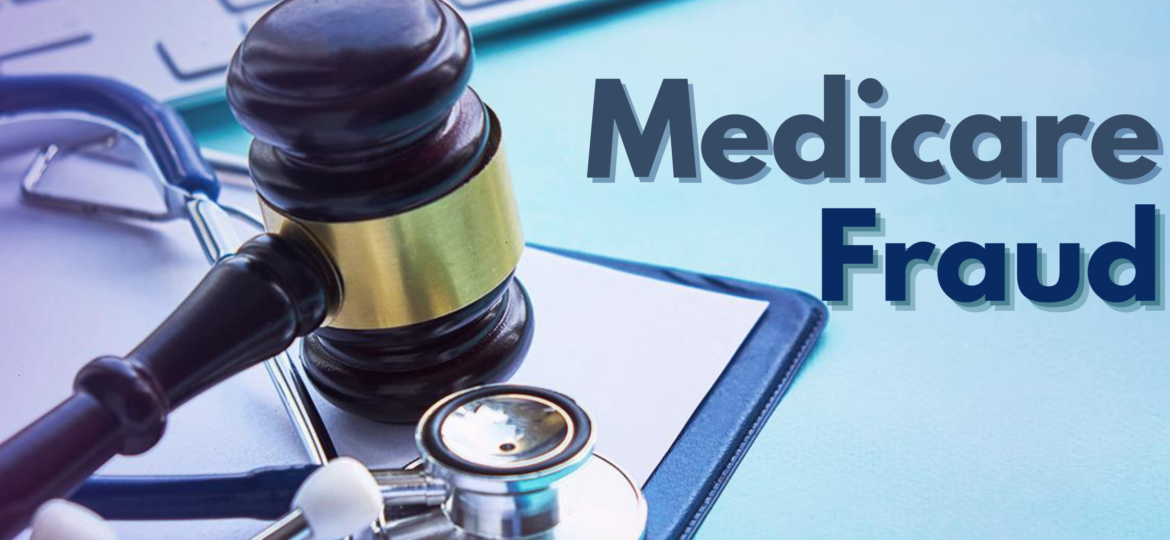
Medicare fraud and abuse: How to protect yourself
Medicare, the federal health insurance program that millions of Americans rely on, is designed to provide essential healthcare services to individual over 65 and individuals with disabilities.However, like any system, it is vulnerable to fraudulent activities and misuse. In recent years, there has been a concerning increase in the cases of Medicare fraud and abuse, which places a significant burden on taxpayers, costing them billions of dollars annually. It’s crucial to be well-informed about this issue to safeguard this essential program’s integrity and protect your interests. In this blog, we will discuss the different types of Medicare fraud & abuse and share the simple ways to protect yourself from these threats. Join us in learning how to safeguard your Medicare information and ensure you get the care you deserve without falling victim to fraud.

What do you understand by Medicare Fraud and Abuse?
Medicare fraud and abuse are terms often used interchangeably, but they refer to distinct issues within the Medicare system:
Medicare Fraud
It involves intentional deception or misrepresentation to gain unauthorized benefits, payments, or services from the Medicare program. It is a deliberate act to exploit the system for personal gain, such as submitting false claims, identity theft, or kickbacks.
Medicare Abuse
Unlike fraud, abuse doesn’t necessarily involve intentional deceit. Instead, it refers to practices that may not be medically necessary or appropriate but still occur, resulting in unnecessary costs to Medicare.
What are the different types of Medicare fraud and abuse?
There are many different types of Medicare fraud and abuse, but some of the most common include:
- Billing for Services Not Provided: Some healthcare providers submit claims for services or supplies that were never delivered to the patient.
- Phantom Billing: Providers may bill Medicare for unnecessary medical procedures or treatments that were never performed.
- Kickbacks and Bribery: In exchange for patient referrals or the purchase of medical equipment, providers may offer or receive illegal payments or kickbacks.
- Identity Theft: Thieves may fraudulently steal your Medicare card or personal information to obtain medical services or products.
- Upcoding: Healthcare providers may bill for more expensive procedures than those actually performed, resulting in higher reimbursement.
Effective Ways To Protect Yourself From Medicare fraud and abuse
Now that we’ve discussed the various ways Medicare fraud can occur, let’s discuss some practical steps you can take to protect yourself or your loved ones:
Guard Your Medicare Card: Treat your Medicare card like a credit card, never sharing your Medicare number with anyone who contacts you unexpectedly. Only provide your Medicare information to trusted healthcare providers.
Verify Claims: Regularly review your Medicare Summary Notice (MSN) or Explanation of Benefits (EOB) for any services you didn’t receive. If you spot discrepancies, report them immediately.
Beware of Unsolicited Calls or Visits: Be cautious when approached by anyone claiming to be a Medicare representative, especially if they request personal or financial information. Genuine Medicare representatives won’t contact you unexpectedly.
Research Healthcare Providers: Before selecting a healthcare provider, research their credentials and reputation. Verify their billing practices to ensure they adhere to Medicare regulations.
Keep Records: Maintain records of all your medical appointments, prescriptions, and bills. These can serve as valuable evidence in case you suspect fraud or abuse.
Bottom Line
Medicare is a lifeline for millions of Americans, and protecting it from fraud and abuse is extremely important. By understanding the different forms of fraud and being careful about whom you share your Medicare information with, reviewing your MSNs carefully, and asking questions about your medical care, you can help reduce your risk of becoming a victim.
If you suspect Medicare fraud or abuse, immediately report it to the CMS Fraud Hotline. You can also contact your local Medicare Senior Medicare Patrol (SMP) for help. SMPs are volunteer organizations that help Medicare beneficiaries to identify and report Medicare fraud and abuse.


